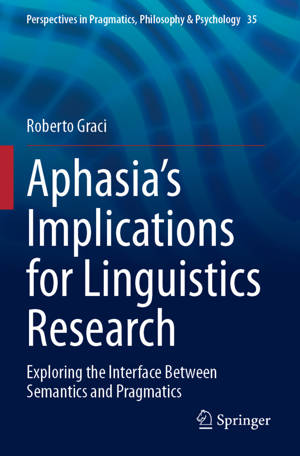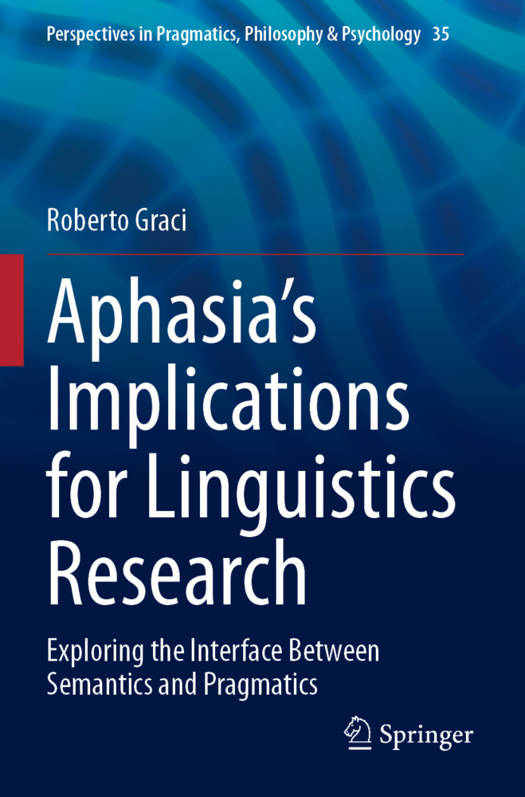
- Retrait gratuit dans votre magasin Club
- 7.000.000 titres dans notre catalogue
- Payer en toute sécurité
- Toujours un magasin près de chez vous
- Retrait gratuit dans votre magasin Club
- 7.000.0000 titres dans notre catalogue
- Payer en toute sécurité
- Toujours un magasin près de chez vous
Aphasia's Implications for Linguistics Research
Exploring the Interface Between Semantics and Pragmatics
Roberto GraciDescription
This volume stresses the importance of a multidisciplinary perspective in deepening knowledge of the interface between semantics and pragmatics. It thoroughly investigates concepts belonging to Neo-Gricean and post-Gricean theories. Theoretical research in pragmatics has challenged the idea of a close relation between literal meaning and the explicitly conveyed proposition, claiming that situational context is responsible for an ongoing process of adjusting and revising what a speaker says. Similarly, recent discoveries from the clinical side have highlighted the importance of extra-linguistic sources and the cognitive context in the syntactic and semantic competence of people with language disorders. The productive comparison between reflections from theoretical pragmatics and the most recent developments in cognitive sciences provides an authentic way of addressing traditional philosophical issues, moving them to a new fertile ground. The research herein is gathered across disciplines to provide theoretical and clinical contributions and collaborations, making this book broadly appropriate to students, researchers and professionals in the fields.
Spécifications
Parties prenantes
- Auteur(s) :
- Editeur:
Contenu
- Nombre de pages :
- 142
- Langue:
- Anglais
- Collection :
- Tome:
- n° 35
Caractéristiques
- EAN:
- 9783031368134
- Date de parution :
- 27-08-24
- Format:
- Livre broché
- Format numérique:
- Trade paperback (VS)
- Dimensions :
- 155 mm x 235 mm
- Poids :
- 248 g

Les avis
Nous publions uniquement les avis qui respectent les conditions requises. Consultez nos conditions pour les avis.






